2024-2025 Colloquia
April 14th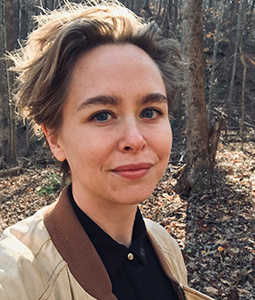
Chelsea Fisher
The University of South Carolina
Cows, cowboys, and legacies of colonial ranching in the Yucatec Maya landscape: Insights from archaeology at Hacienda Cetelac
Cattle ranching occupies a complicated place in Mexico's Yucatán Peninsula. Ranching is at once an empowering subsistence strategy for Indigenous Maya farmers, as well as a major driver of deforestation and land dispossession. In this presentation, I trace these complex dynamics back to their origins in the colonial period, when the development of cattle estates first accelerated across the Yucatán Peninsula. Drawing on recent archaeological investigations at the 18th-19th century ranching estate of Hacienda Cetelac, I will talk about the people and animals involved in the early transformative stages of colonial ranching, and examine how the legacies of colonial ranching continue to shape environmental justice conflicts in Yucatán today.
April 28th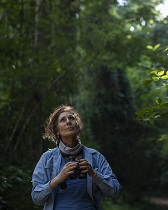
Karen Strier
University of Wisconsin - Madison
The Limits of Resilience: A 40-year perspective on the future of the world’s most peaceful primate
Field data on the behavioral ecology and demography of wild primate populations are essential to informed conservation and management programs for endangered species. However, they are not enough to save our primates. Here, I share insights gained from more than four decades of research with one of the last remaining populations of the Critically Endangered Northern Muriqui (Brachyteles hypoxanthus) in a small fragment of the Atlantic Forest of southeastern Brazil. Among the most important of these is that muriquis live in remarkably peaceful, egalitarian societies, and that males stay in their natal groups for life while females disperse prior to puberty. These distinctive behavioral features are highly resilient, despite variable ecological and demographic conditions over time and space. Distinguishing such conservative behavioral patterns from more flexible ones represents a new priority for conservation and management action plans for muriquis and other endangered primates.
May 12th
Barbra Meek
University of Michigan
Relanguaging: From semiotic marginalization to decolonization
What does it mean to “re-language”? I offer this term as a proposal for extending H. Samy Alim’s concept of ‘languaging’ to define a process for redressing ongoing, often covert, acts of semiotic marginalization (stereotyping, racism, pernicious exclusion) and to offer a path for remediating those negative acts. To exemplify re-languaging as a process, I reanalyze my work on language documentation, revitalization, and popular media. I argue that re-languaging happens through the non-conforming voices, perspectives and linguistic forms that are often the “noise” in a dataset. Furthermore, I posit that re-languaging encompasses “decolonization” while also addressing the contradictions entailed in a process of decolonization in settler-colonial contexts. In tandem with reflexive research and collaboration, re-languaging confronts the marginalizing effects of a dominant, settler-colonial gaze.
Barbra A. Meek is a citizen of the Comanche Nation, professor of anthropology and linguistics, and associate dean for the social sciences at the University of Michigan, Ann Arbor. She received her PhD in Anthropology and Linguistics from the University of Arizona (2001). Her research spans child language socialization, Athabaskan sociolinguistics, language revitalization, and the ethno-racializing semiotics of Hollywood media.
Past Events
February 17th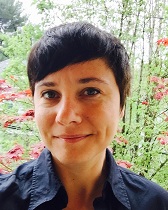
Asli Zengin
Rutgers University
Book Abstract:
Violent Intimacies: The Trans Everyday and the Making of an Urban World
In Violent Intimacies, Aslı Zengin traces how trans people in Turkey creatively negotiate and resist everyday cisheteronormative violence. Drawing on the history and ethnography of the trans communal life in Istanbul, Zengin develops an understanding of cisheteronormative violence that expands beyond sex, gender and sexuality. She shows how cisheteronormativity forms a connective tissue among neoliberal governmentality, biopolitical and necropolitical regimes, nationalist religiosity and authoritarian management of social difference. As much as trans people are shaped by these processes, they also transform them in intimate ways. Transness in Turkey provides an insightful site for developing new perspectives on statecraft, securitization and surveillance, family and kin-making, urban geography, and political life. Zengin offers the concept of violent intimacies to theorize this entangled world of the trans everyday where violence and intimacy are co-constitutive. Violent intimacies emerge from trans people’s everyday interactions with the police, religious and medical institutions, street life, family and kinship, and trans femicides and funerals. The dynamic of violent intimacies prompts new understandings of violence and intimacy and the world-making struggles of trans people in a Middle Eastern context.
Bio:
Aslı Zengin is an Assistant Professor in the Department of Women’s, Gender and Sexuality Studies at Rutgers University-New Brunswick. Before joining Rutgers, she held postdoctoral positions at Brown, Harvard, and Brandeis Universities. Her first book, Intimacy of Power: Women Prostitutes, Sex Work and Violence in İstanbul (Iktidarin Mahremiyeti: Istanbul’da Hayat Kadinlari, Seks Isciligi ve Siddet), was published in Turkish. Her new book, Violent Intimacies: The Trans Everyday and the Making of an Urban World is recently published by Duke University Press. Her research lies at the intersection of ethnography of sex/gender non-conforming lives and deaths; medico-legal regimes of sex, gender and sexuality; critical studies of violence and sovereignty; politics of mourning and grief; as well as transnational feminist and LGBTQ movements in the Middle East with a special focus on Turkey.
September 30th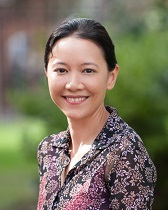
Rachel Carmody
Harvard University
Gut microbiome plasticity and human adaptability in changing environments
The gut microbiome responds rapidly to dietary change and other ecological perturbation. Plasticity in the gut microbiome is a double-edged sword, potentially lending humans some extra-genomic capacity for adaptation to environmental change while also creating opportunities for pathology if the gut microbiome departs from profiles to which our physiology has adapted. In this talk, I'll discuss recent work probing the benefits and costs of gut microbial plasticity for human physiology and highlight key opportunities for future research.
October 21st
Carolyn Rouse
Princeton University
A Type of Freedom: The Meaning of Low White Life Expectancies in the US.
Americans see longer life expectancies as an indication of economic and social progress. But are they? If white life expectancies in the United States are plateauing, and in some cases lower than in many so-called “developing countries,” then what does that say about American progress? This talk explores the meaning of life and death in a white rural community where the average life expectancy is 74. The talk focuses on how the concept of freedom shapes political subjectivities and choice in ways that increase rates of morbidity and early mortality. A 35-minute work-in-progress film will be included in the talk.
October 28th
Miki Makihara
Queens College and the Graduate Center, City University of New York
Rapa Nui Voice, Stance, and Subjectivities
Language has become a desired object of attention in many indigenous and other minority communities around the world. Yet the objectives and challenges of language revitalization and reclamation efforts are sometimes misrecognized and experienced differently by individual speakers, families, language and political activists, and nation-states. Based on interviews with language activists and three decades of accompanying the Rapa Nui community’s (aka Easter Island, a Polynesian island in Chile) efforts in language maintenance and revitalization, we reflect upon the shifting stancemaking positions that have developed in the community. These include (a) how language activists have come to center attention on a variety of Rapa Nui language, that some have called maitaki (‘clean and beautiful’) speech, as central to the community’s commitment to genealogical continuity, land reclamation, and community building through language structuration and cherishing, (b) how community members have developed the practices of, and intimacy with, everyday syncretic bilingual ways of speaking but have been persuaded to appreciate the cherished Rapa Nui language, and (c) how the democratizing Chilean state’s evolving stance toward indigenous groups (pueblos originarios) and multiculturalism has come to elevate cherishing the Rapa Nui language, but has fallen short of supporting revitalization efforts in meaningful ways.
November 11th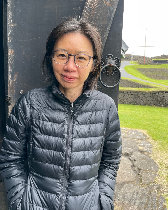
Alice Yao
University of Chicago
The Whiteness of Milk: The High Stakes of Lactose (In)tolerance
Until a few years ago, being lactose tolerant or intolerant seemed fairly unremarkable. You were either one or the other. However, the ability to digest milk – a trait that is associated with genetic mutation enabling the production of lactase in adults - has recently been embraced by the alt-right and dairy campaigns like "milk core" and "97Milk." Fanning this controversy of the “white milk gene” are the epic discoveries in archaeology and genetics that now provide evidence for the beginnings of dairying and the diffusion of -13.910:C>T(rs4988235) genetic mutation in prehistoric Europe. And even though experts in the hard and soft sciences decry the misuse of science, the ability to digest milk remains a persistent and real biological fact. How did lactose intolerance become settled as a fact? And where will it take us to as a matter of concern? This talk examines the “whiteness” of the dairy gene as a history of an idea, one borne out of the collaboration between different disciplines from WWII to the present. I investigate its emergence as a scientific object and trace how different actors come to demonstrate its existence empirically - from bodies, gas, genes, and artifacts to data bytes. How can a gene tolerate – in the words of Latour - so many opposite signals coming from different disciplines? In this talk, I examine how archaeologists, scientists, farmer activists, and white nationalists co-exist in this space while asking how the dairy gene places anthropology’s own legacy in an unsettled racialized future.
